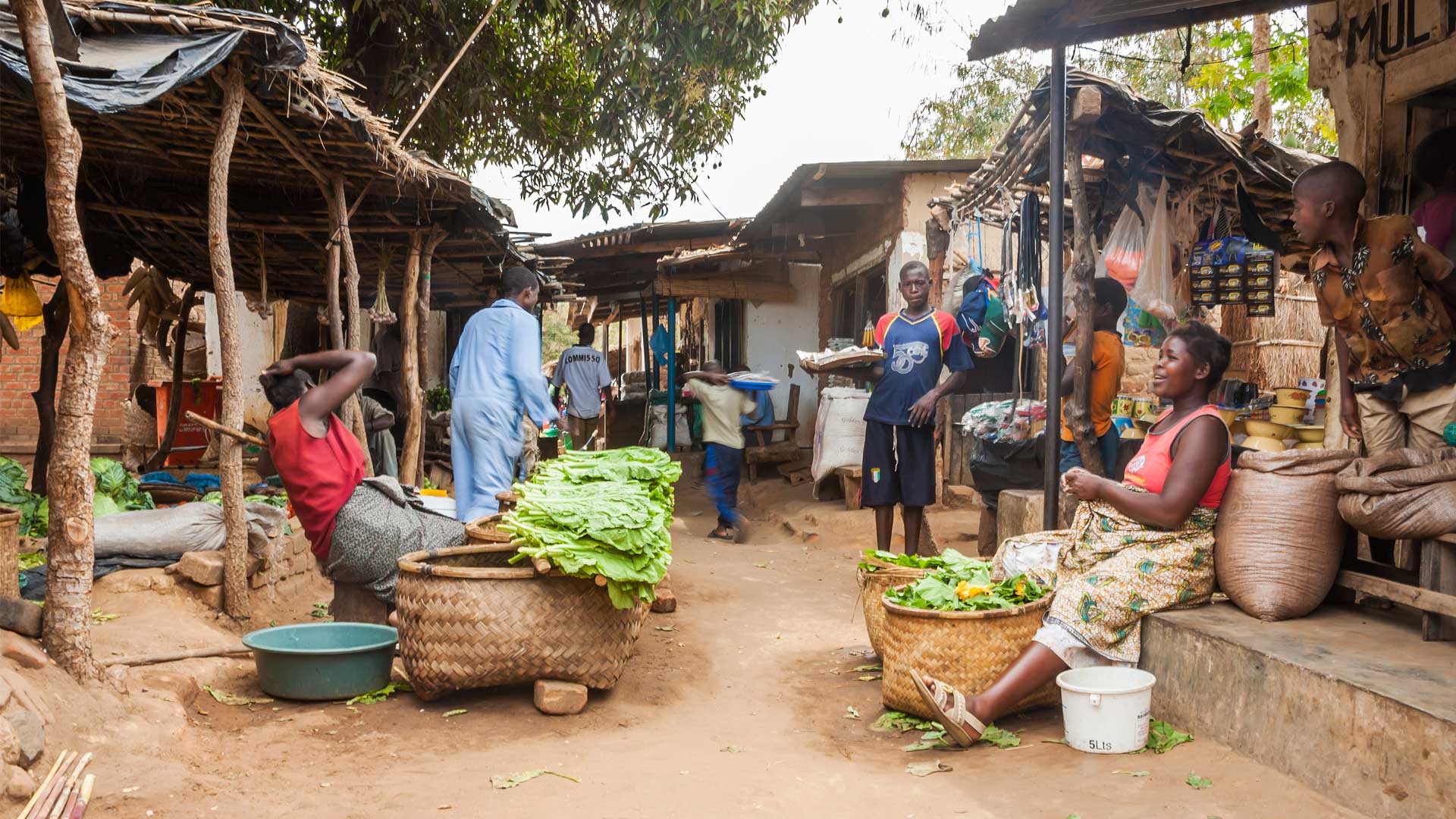 Malawian fresh food market
Malawian fresh food market
Walking about at Lizulu market, in the center of Lilongwe city in Malawi, you will see many young people selling a range of products, from vegetables and fruits to second hand plumbing materials. It is such a busy place, and you will find nearly anything to meet your needs across many sectors of the economy. The traders are either employed to run the business or it is their own. Such kind of market situation is a common sight in trading centers around this country of nearly 18 million people and an estimated 1.6 million micro small and medium sized enterprises (MSMEs).
These largely informal micro-enterprises are major part of the private sector in Malawi. The 2019 Malawi FinScope MSME Survey estimates that there were almost 1.6 million MSMEs in the country, employing about 1.8 million people in total. About three in four enterprises (74%) are micro enterprises, 23% are small enterprises and only 3% are medium enterprises. It is estimated that MSME sector contributes about 40% of gross domestic product (GDP) and 24% of employment, and that about 21% of the country’s adult population derives their livelihood from the sector. This contribution is not small.
Despite their number and potential to contribute more to the economy, the capacity of the MSMEs to expand remains low because they often do not have the same access to knowledge and networks as larger businesses. They lack financing and have limitations in many areas such as business planning and management, book-keeping, financial management, marketing, and employee management. Sometimes, they simply do not have the resources to pay for support services that can help business growth and resilience. In addition to the high cost of formal credit, the MSMEs tend to depend on informal credit mechanisms, village savings and loan associations, contributions from family and friends, rotating savings and credit associations, and loan sharks. These sources provide expensive money. But who can blame them when access to finances by such MSMEs from financial institutions requires fulfilling several unattainable conditions?
While some business-friendly reforms in the country have been made to address the above challenges, MSMEs continue to struggle in their quest to scale up. In 2020 and 2021, the impact of the COVID-19 (coronavirus) pandemic on private sector businesses, especially on the MSMEs, heightened the risks of bankruptcy and insolvency.
To address this challenge, the Government of Malawi initiated the Financial Inclusion and Entrepreneurship Scaling (FInES) project, with a $86 million credit from the International Development Association. Through this project, the Reserve Bank of Malawi (RBM) is partnering with commercial banks, microfinance institutions and development finance institutions to provide low-cost loans to innovative enterprises including those hit by COVID-19, support innovative start-ups, and establish capable and well supervised investments while enabling them to adopt digital financial services. Capacity building programs are being offered to innovative potential MSMEs.
One year into the project implementation, more than $22 million has been extended to open lines of credit for MSMEs throughout the country. Through this opportunity, an agrobusiness enterprise operating in Ntchisi District, 80 km from Lilongwe, doubled maize and soya production this year. Other successes include a Salima-based confectionery business and a sugar cooperative in Chikwawa both of which saw revenue doubling.
Considering that most people in Malawi live in rural areas, concerted efforts are also ongoing to extend such support to MSMEs from the rural areas in line with the government’s rural industrialization efforts.
As the project continues to reach out to more potential MSMEs, the enterprise owners could be mobilized to take advantage of the current reforms to formalize business operations, attend available training opportunities to improve capacity and adopt digital financial services innovations.
Encouraging financial institutions to develop innovative credit products tailored to the needs and nature of small businesses or introduce innovative financing schemes can ease MSME access and grow the portfolio.
Future businesses for the financial sector player depend on this segment of MSMEs. With the government continuing to provide the necessary environment for business to take place, it’s a win-win situation.
Imagine if half of the 1.6 million micro, small and medium-sized enterprises would be easily registered, were able to access credit, technology platforms and capacity-building; Malawi’s challenges of weak growth and job creation will obviously be partly addressed.
But for now, the challenges remain, the young vendors at Lizulu market continue to ply their trade with few prospects for scaling their business. It is time to revolutionize and give them a good push for their own economic benefit and that of the country, too.


Join the Conversation